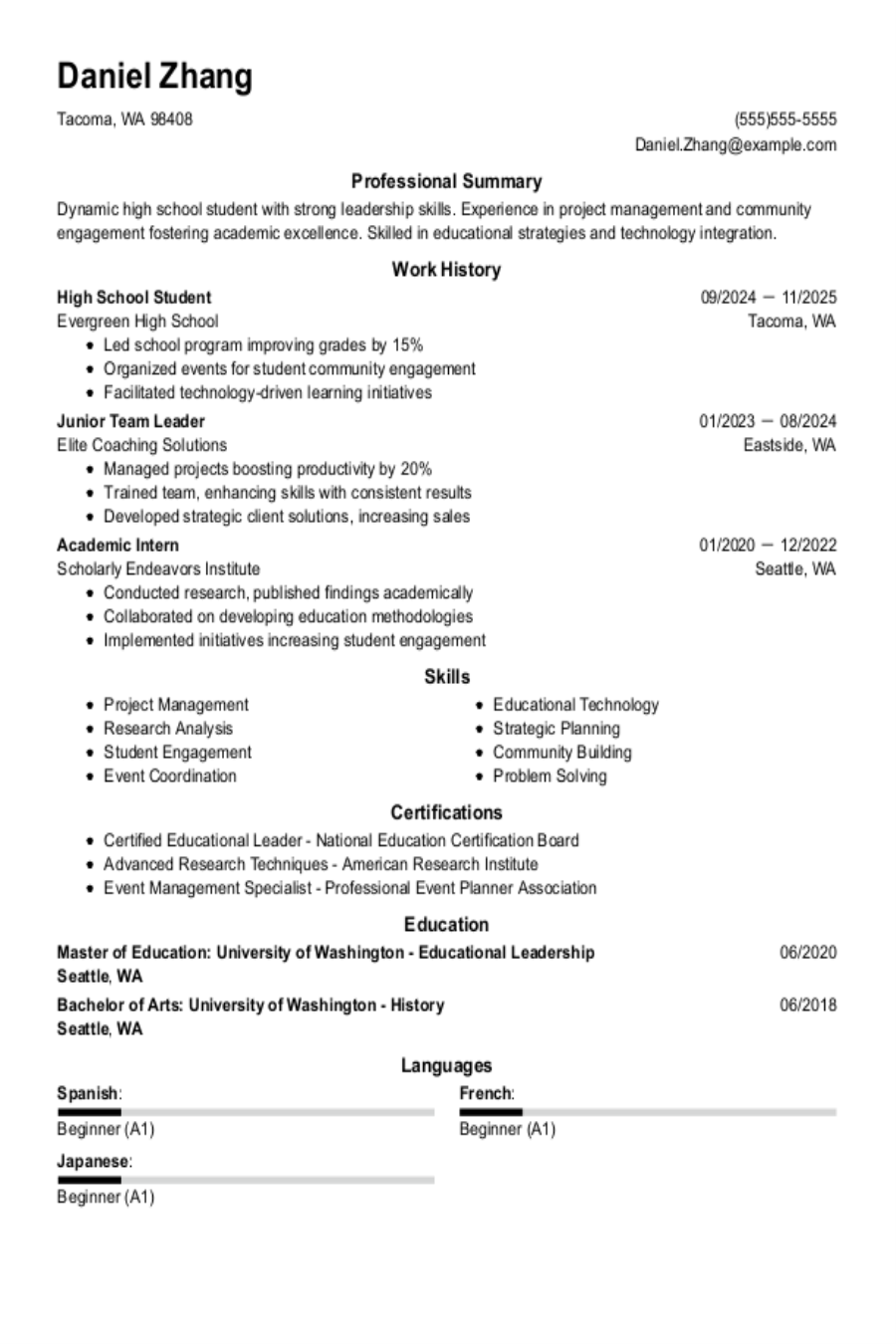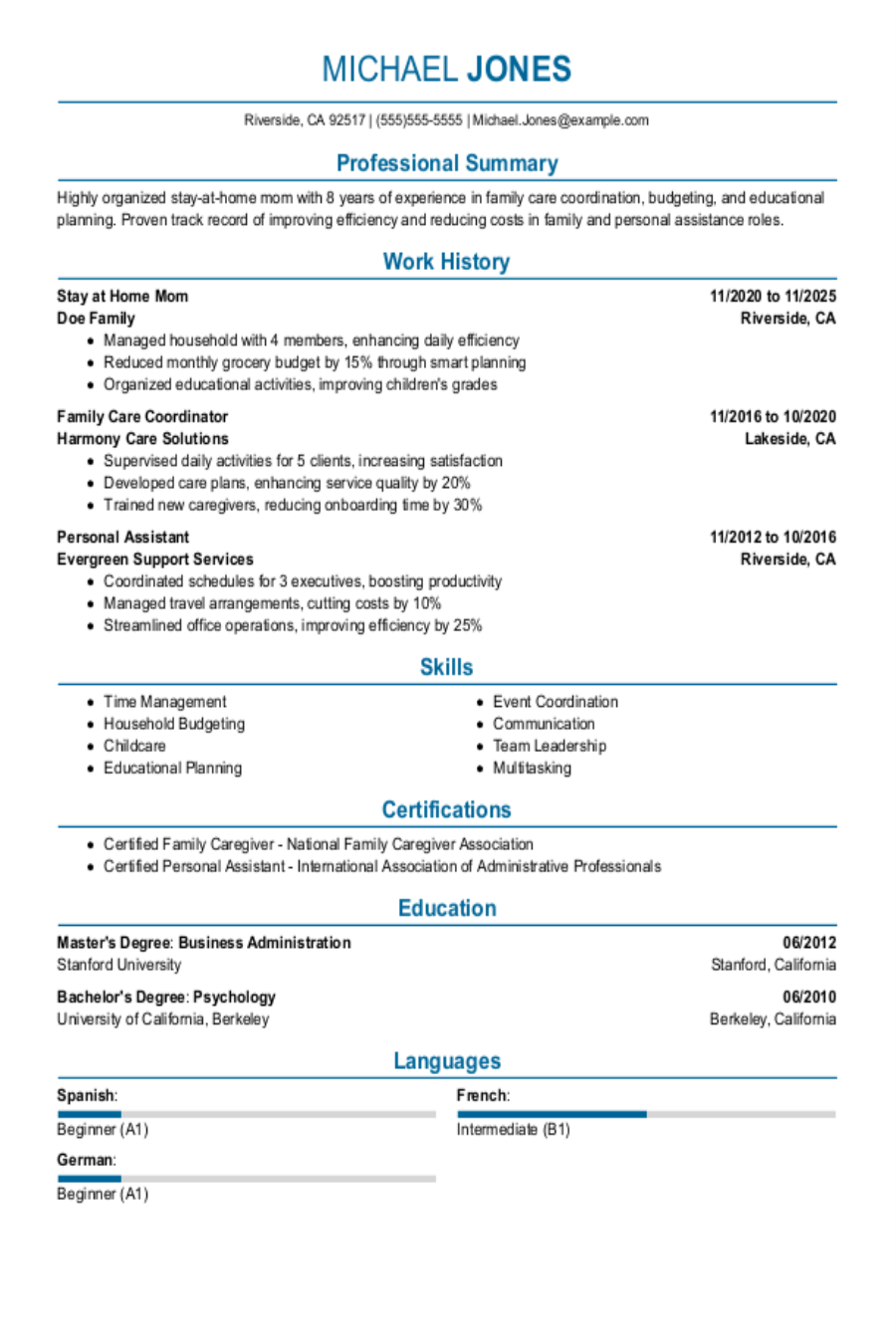Your resume needs to be a skillfully honed document that’s informative, but also sells you as the perfect candidate for a job. One of the best ways to do this is to create a job-winning summary statement.
There are two types of introductory statements you can use: resume objectives and resume summaries. If you’ve never had a job or are pivoting your career path, you might want to consider using a resume objective. In all other situations, it’s preferable to include a resume summary.
Your resume summary is likely to be the first thing a recruiter or hiring manager sees when they open your resume, so it plays a vital role in promoting you.
As a summary statement takes up valuable resume real estate — at the top of the resume — you need to ensure it’s succinct and packs a punch.
Let us write your resume summary for you. Try out our AI Resume Summary Generator to save yourself valuable time. Simply upload your resume, and we’ll provide a tailored resume summary that you can customize to your liking.
What is a resume summary statement, exactly?
A resume summary is the written version of an elevator pitch. You want to use it to draw the recruiter in and let them know — quickly — why you’re a valuable prospect for a job.
Similar to resume objectives, resume summaries typically take the form of a short paragraph, but can also appear as a series of short statements and keyword phrases (see an example towards the end of this article).
At the end of the day, the most important thing is that the resume summary adds value and helps you to stand out. Our Resume Builder can help you assemble a top-notch summary statement in no time at all, with expert text suggestions for your summary that you can customize.
Easily create your resume today using one of our recruiter-approved templates.
How do you write a resume summary statement?
Customize it to each job
A good resume summary is one that is crafted to include important information relevant to the job ad. Steinitz says, “An effective resume summary should be targeted at the specific employer, in a similar way to how you might customize a cover letter.”
Not only will customizing a resume summary statement — and your resume in general — help to impress a recruiter, it’ll contribute towards getting your resume into a recruiter’s hands in the first place. With applicant tracking systems (ATS) gaining popularity in major companies, including keywords throughout your resume is becoming vital.
Brooke Bolton Hall, president and owner of Accent Professional Recruiting , suggests tailoring your resume summary by adding a few core competencies that relate to each job you apply for. “When I look at resumes, I like seeing a brief summary and then some core competencies listed underneath it,” she explains. “Done properly, this is a really effective strategy and can impress a hiring manager. It also assists in getting past any artificial intelligence or ATS involved in the process.
“It’s really frustrating for job seekers and hiring managers when great candidates’ applications get put into the ‘no’ pile via an ATS because they didn’t customize their resume. This little bit of tweaking can make all the difference.”
So, how do you customize your summary? By scanning the job ad, highlighting the main keywords, and including similar words and phrases in your statement. As you write your summary, Alba suggests remembering that a hiring manager is looking for three things: fit, experience and relevance.
Ensure that it stands out by noting quantifiable accomplishments
In line with the above point, it’s crucial that your resume helps you to grab the reader’s attention and set yourself apart from the crowd. Steinitz notes, “Ensure your message is compelling. It should directly address how your skills relate to the open position.” Including keywords is a good start, but you want to draw the recruiter in with original quantified information.
Hall agrees: “I’m one of those recruiters who spends less than 10 seconds on a resume. In the summary statement, I want to see relevant past experience and ‘tangible’ accolades and achievements. Perhaps you saved your company X amount of money, or you were responsible for Y percentage of the quota. When I look down, I want to see numbers, percentages and specific words relating to the job.”
Alba adds, “Include a nything that shows experience within the industry, or the particular role — the most important qualifications that help you stand out.”
If you’re in the process of changing careers, but have a wealth of experience, you can still include a summary to distinguish yourself; just be sure to keep it targeted. Steinitz advises, “If you’re changing fields, make it clear why the position and employer interest you, and briefly highlight how your transferable skills will be an asset to the firm.”
Keep it short
The resume summary is meant to be exactly that: a summary. It should be brief, while still highlighting your resume’s key points, so keep it succinct. Steinitz explains: “With resume summaries, less is more. Keep it brief, to the point, compelling and directed to the specific employer for the best chance of being contacted for an interview.”
Look at a good example
If you’re not sure whether you’re on the right track, it’s a good idea to have a reference point. Here’s a resume summary example that Hall feels was particularly well done:
Dynamic Sales Leader
Results-oriented sales executive with over 15 years of experience in individual sales execution, sales team leadership, and general management. Areas of expertise include Solution Selling & Challenger Methodology, P & L Management, RFP Process (highly proficient on how to write an RFP), and Talent Recruitment, Training, & Management.
What is best left out of a resume summary?
When it comes to resume summaries, there are a few things that could work against you. Hall advises against adding in any fluff: “Avoid using buzzwords. Phrases like ‘team player’ really don’t mean anything to me. Also, don’t write your summary in the first person. I don’t want to see any pronouns in there.”
Alba’s advice is to “avoid anything ‘cute’ or anything that doesn’t support the message that you have the experience for the role. A resume is not a brag sheet, but a marketing document. You have to remember what your message is and who your audience is.”
If you want some expert suggestions on writing a powerful resume summary for a particular job, and also want to make your resume as good as it can be, use our Resume Builder.
Was this information about How To Write A Powerful Resume Summary Statement helpful? Let us know!
Don is a Certified Professional Resume Writer (CPRW) with more than 10 years’ experience creating digital content, including four years helping job seekers develop their careers. He holds an M.S. in Journalism from Northwestern University.
More resources
![What Should a Resume Look Like in 2025? [+ Example] What Should a Resume Look Like in 2025? [+ Example]](/sapp/uploads/2024/08/what-should-a-resume-look-like-hero.png)
What Should a Resume Look Like in 2025? [+ Example]
A good-looking resume will always use simple fonts and an easy...

25 Common Job Interview Questions and Answers for 2025
Prepare for the interview with examples of some of the most co...

5 of the Best Resume Writing Services You Can Try Today
Discover the best professional resume writing services with th...

Student Resume: 2025 Examples & Templates
As a student you need a resume that captures the attention of...

Stay At Home Mom Resume: Examples, Templates and Tips
As a stay-at-home mom building a resume that highlights your ...

Teen Resume: Examples, Template & Advice for Beginners
As a teen entering the job market you need a resume that show...
